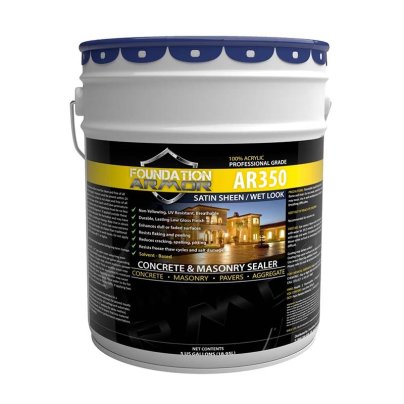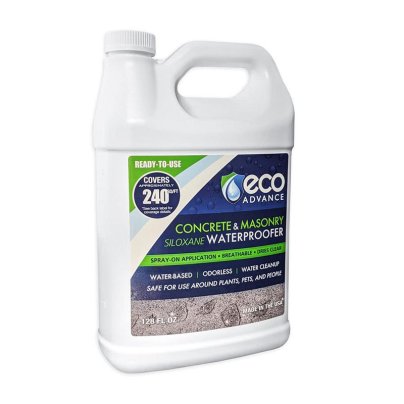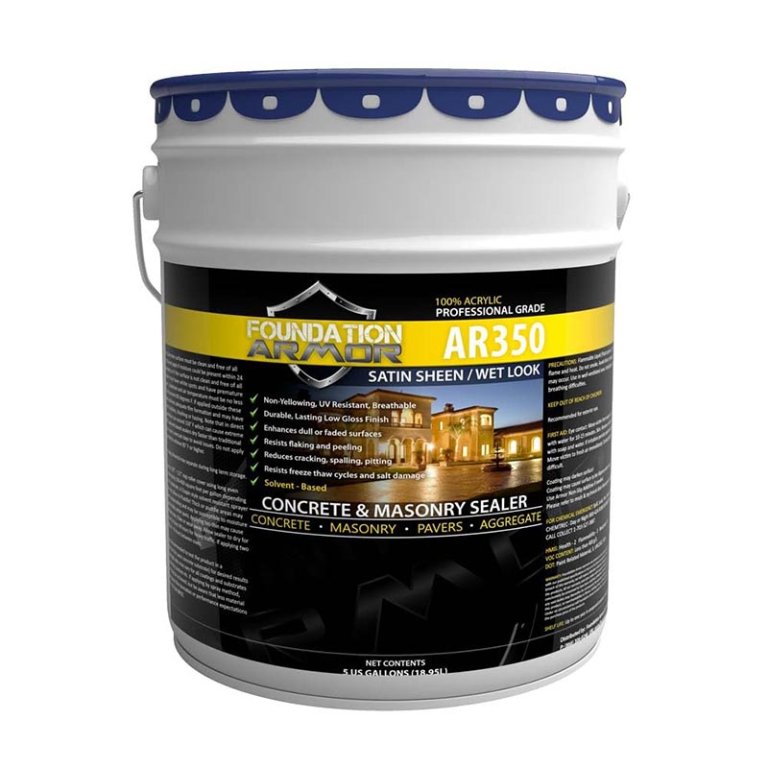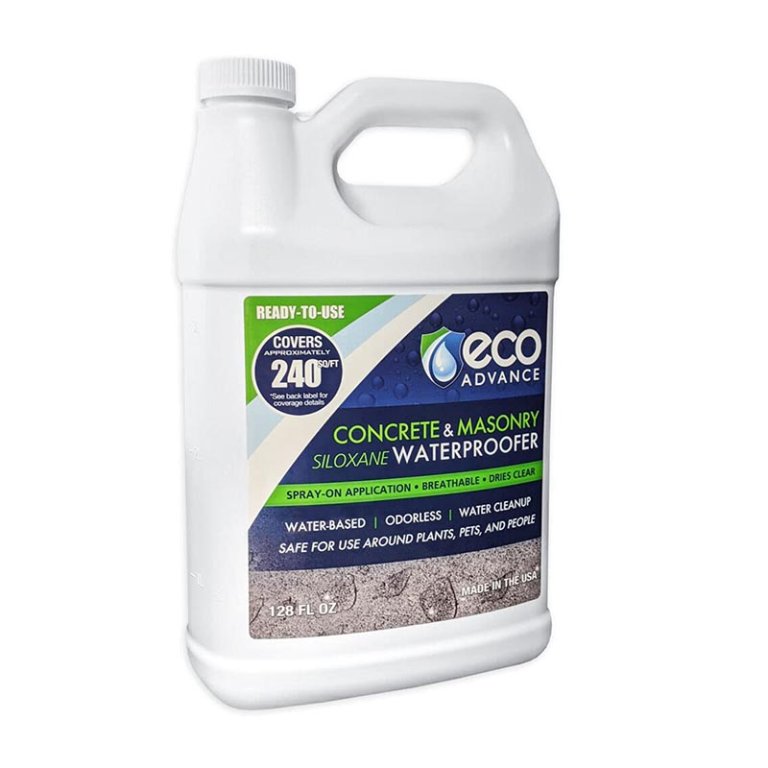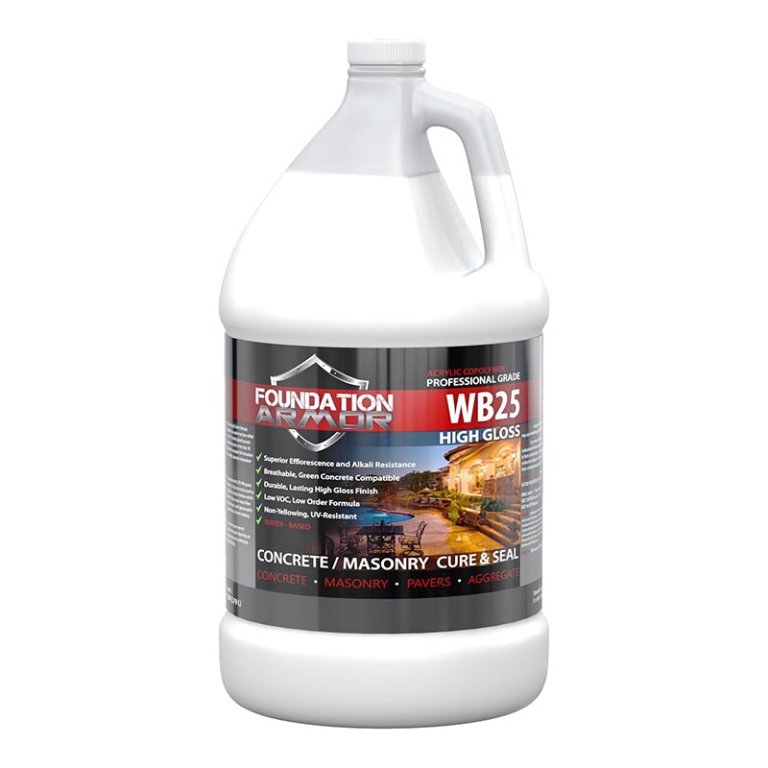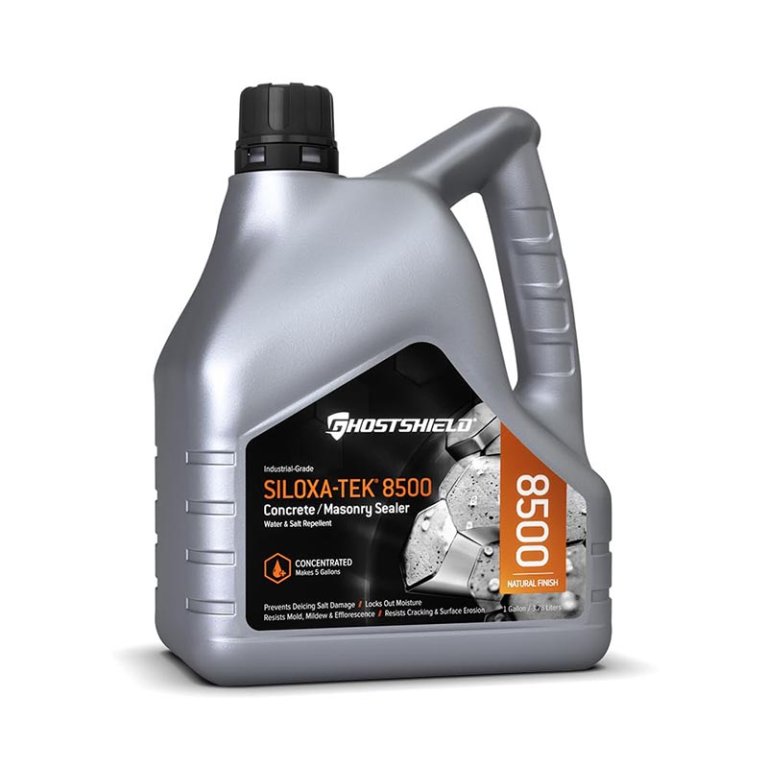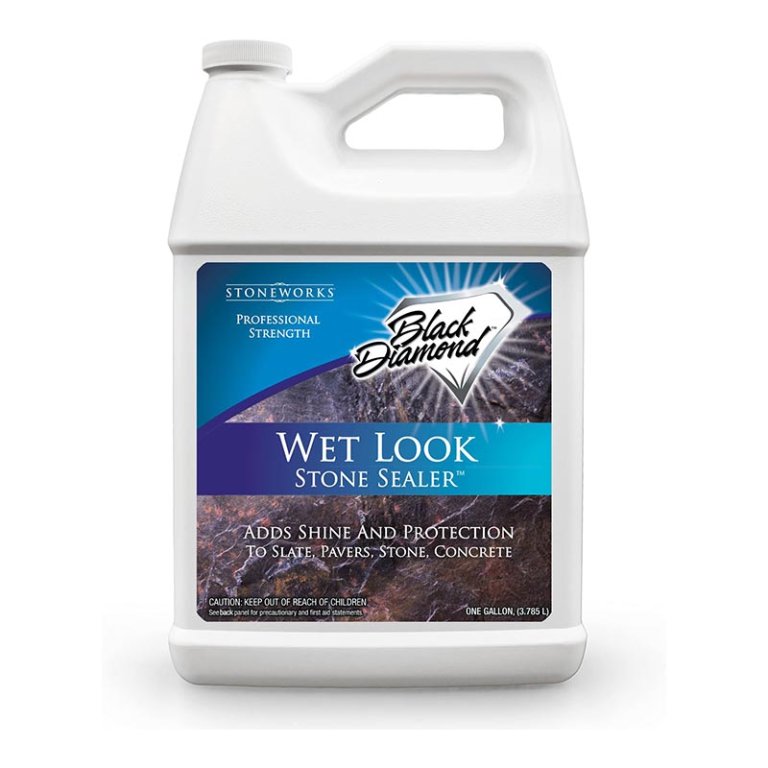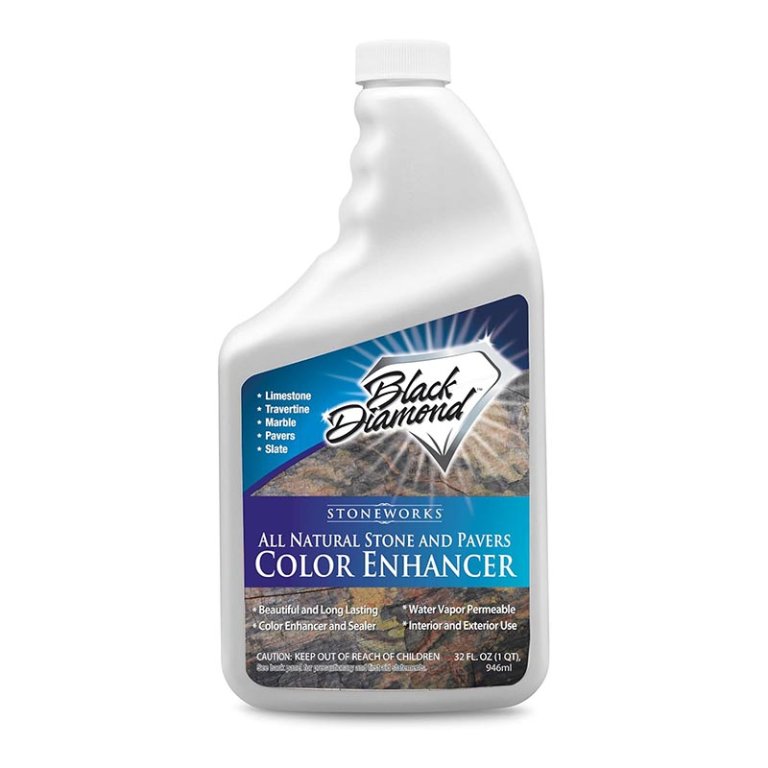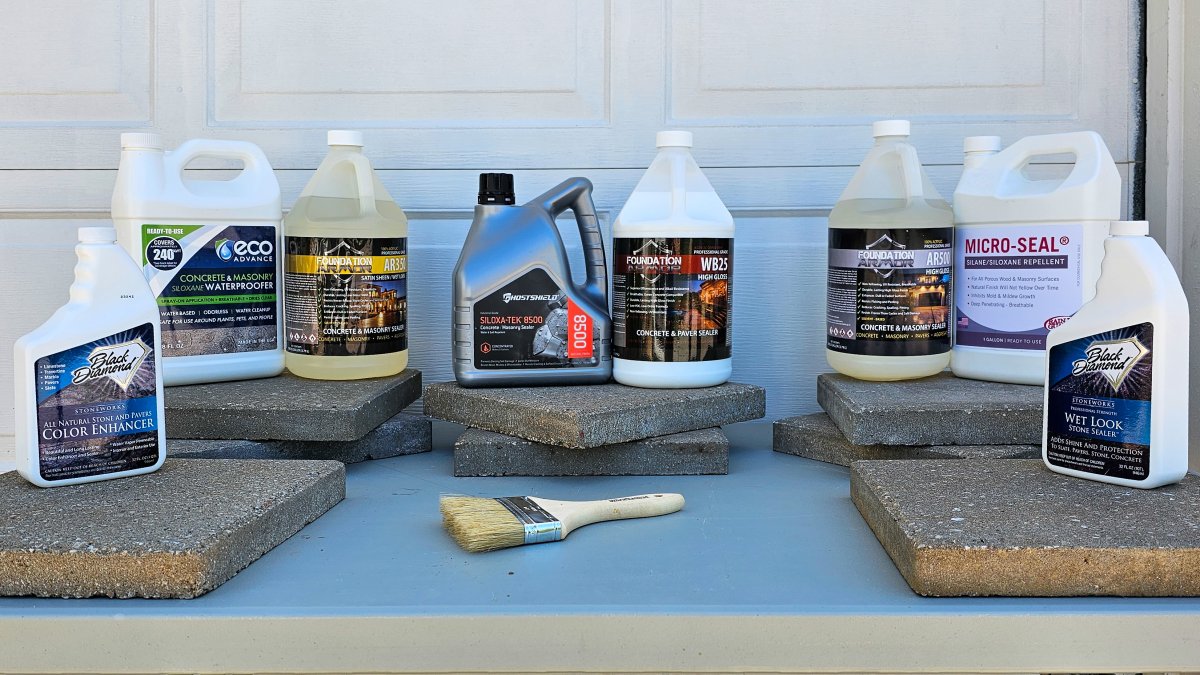
We may earn revenue from the products available on this page and participate in affiliate programs. Learn More ›
Pavers are a favorite medium for creating durable DIY walkways and patios, and paver sealers can keep those outdoor living surfaces looking pristine. To discover which of today’s top paver sealing products lived up to the hype, we researched more than 20 paver sealers before selecting the top eight for hands-on testing. We applied them to concrete pavers and then subjected those pavers to stains and grit. Several products fared well, but we found one clear winner: Foundation Armor AR350 Acrylic Wet-Look Sealer. This concrete paver sealer offers an optimal combination of protection and durability while enhancing the look of the pavers.
These sealing solutions repel stains, making it easier to spray them away. Some products offer added protection against mold, mildew, and foot traffic. They are available in various finishes, including wet look, high-gloss, matte, or satin.
Keep reading to learn more about these clear masonry protector solutions and find out how they fared in our tests to earn a spot as one of the best paver sealers for protecting your masonry walkways.
- BEST OVERALL: Foundation Armor AR350 Acrylic Wet-Look Sealer
↓ Jump to Review - BEST BANG FOR THE BUCK: Eco Advance Concrete & Masonry Siloxane Waterproofer
↓ Jump to Review - BEST ACRYLIC: Foundation Armor WB25 Acrylic High-Gloss Sealer
↓ Jump to Review - BEST PENETRATING: Ghostshield Siloxa-Tek 8500 Concrete/Masonry Sealer
↓ Jump to Review - BEST FOR CONCRETE: Foundation Armor AR500 Acrylic High-Gloss Sealer
↓ Jump to Review - BEST FOR WET LOOK: Black Diamond Stoneworks Wet-Look Stone Sealer
↓ Jump to Review - BEST COLOR ENHANCER: Black Diamond Stoneworks Color Enhancer Stone Sealer
↓ Jump to Review
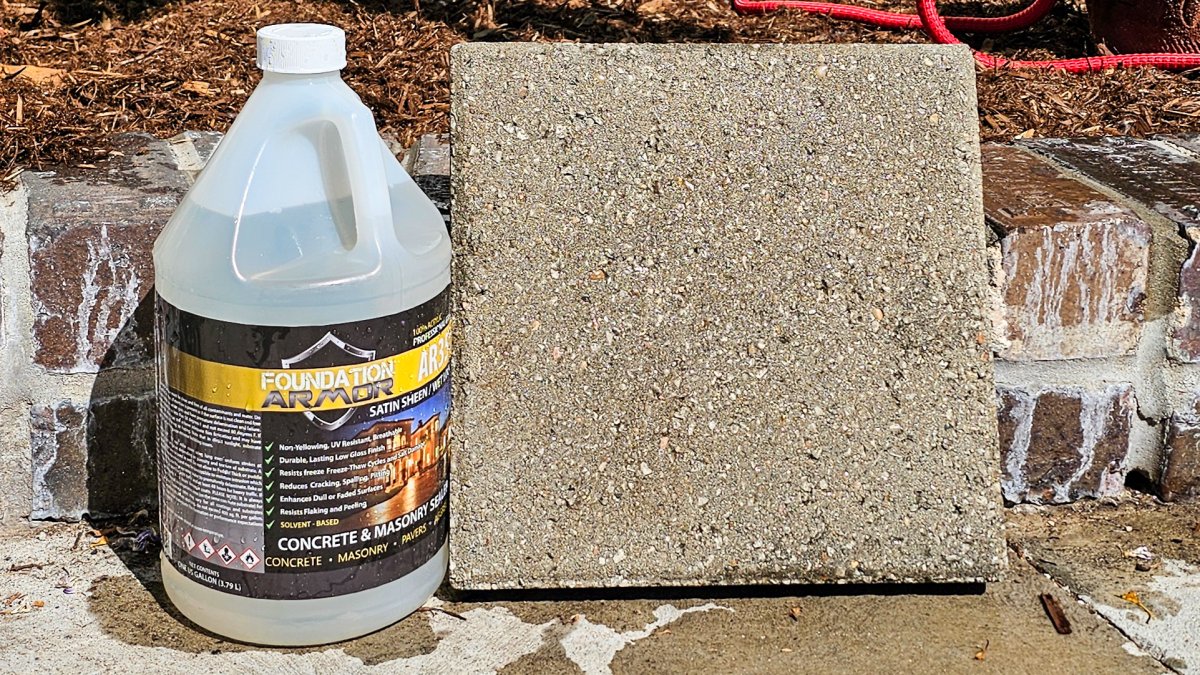
| Suitable Surfaces | Recommended Number of Coats | Finish Look | |
| Foundation Armor AR350 Acrylic Wet-Look Sealer | Concrete | 2 | Wet/sheen |
| Eco Advance Concrete & Masonry Siloxane Waterproofer | Concrete, brick, stone, and other types of masonry | 2 | Natural |
| Foundation Armor WB25 Acrylic High-Gloss Sealer | Concrete | 2 | High gloss |
| Ghostshield Siloxa-Tek 8500 Concrete/Masonry Sealer | Concrete, brick, other masonry | 2 | Invisible |
| Foundation Armor AR500 Acrylic High-Gloss Sealer | Concrete | 2 | High-gloss wet |
| Black Diamond Stoneworks Wet-Look Stone Sealer | Concrete, sandstone, and other masonry types | 1 to 3 | Wet |
| Black Diamond Stoneworks Color Enhancer Stone Sealer | Concrete, all stone (except polished stone), brick | 1 to 2 | Color enhanced (deeper tone) |
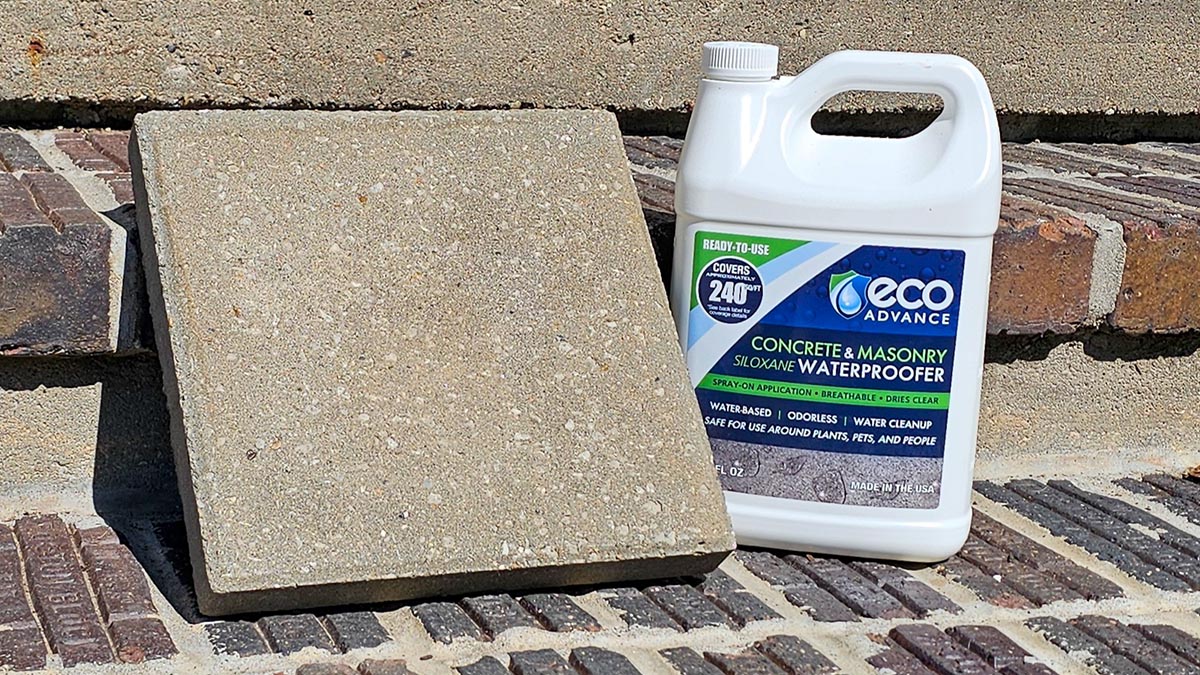
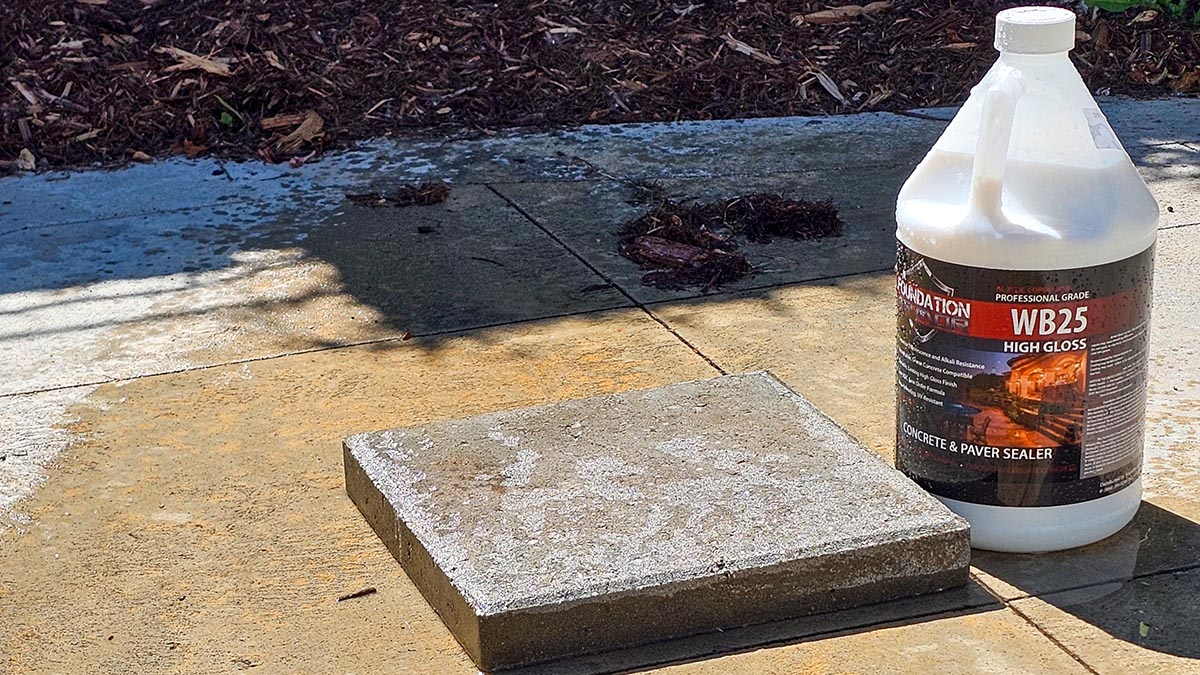
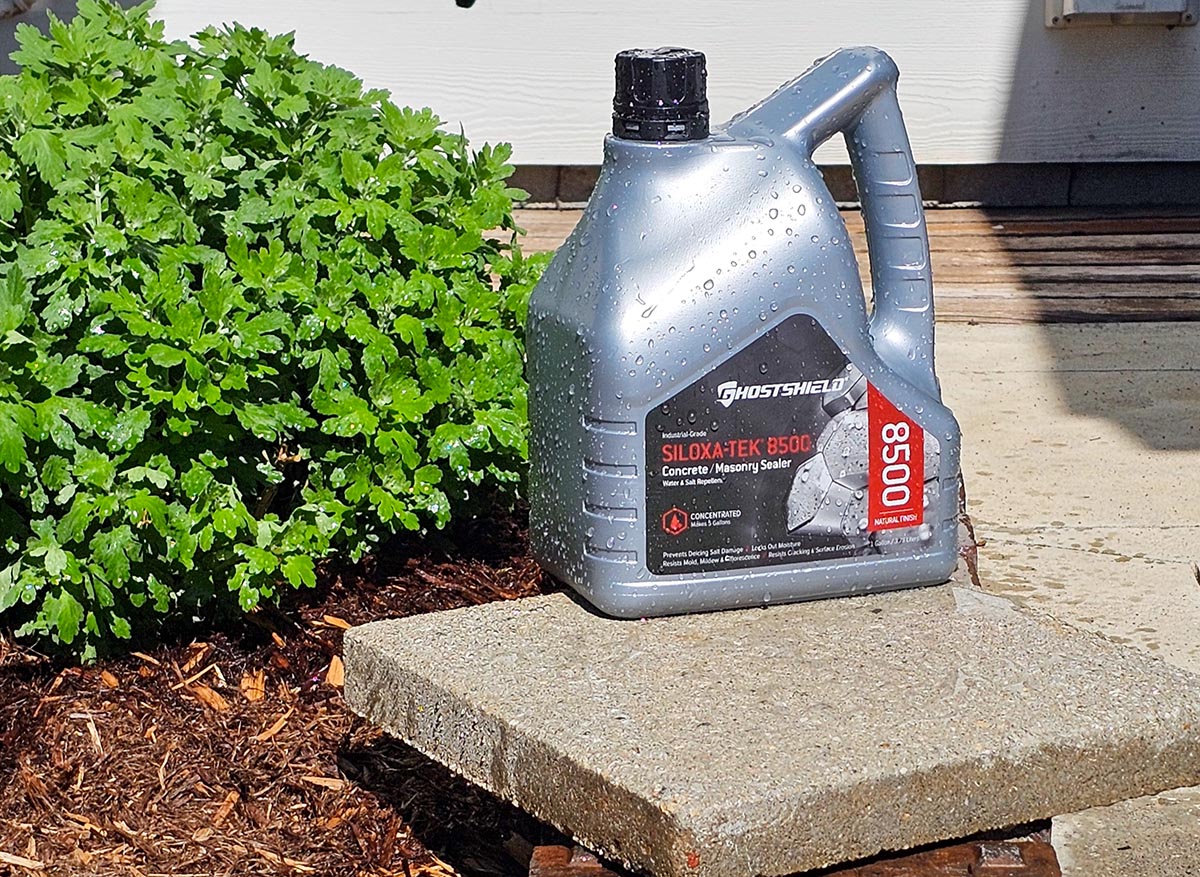
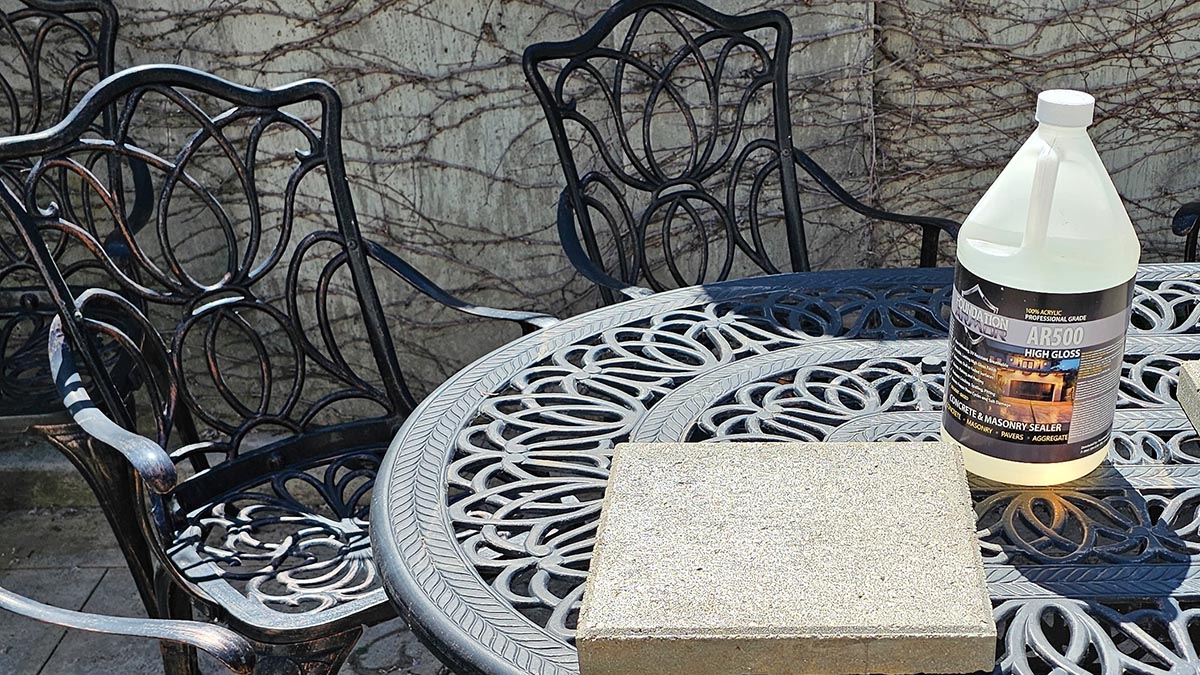
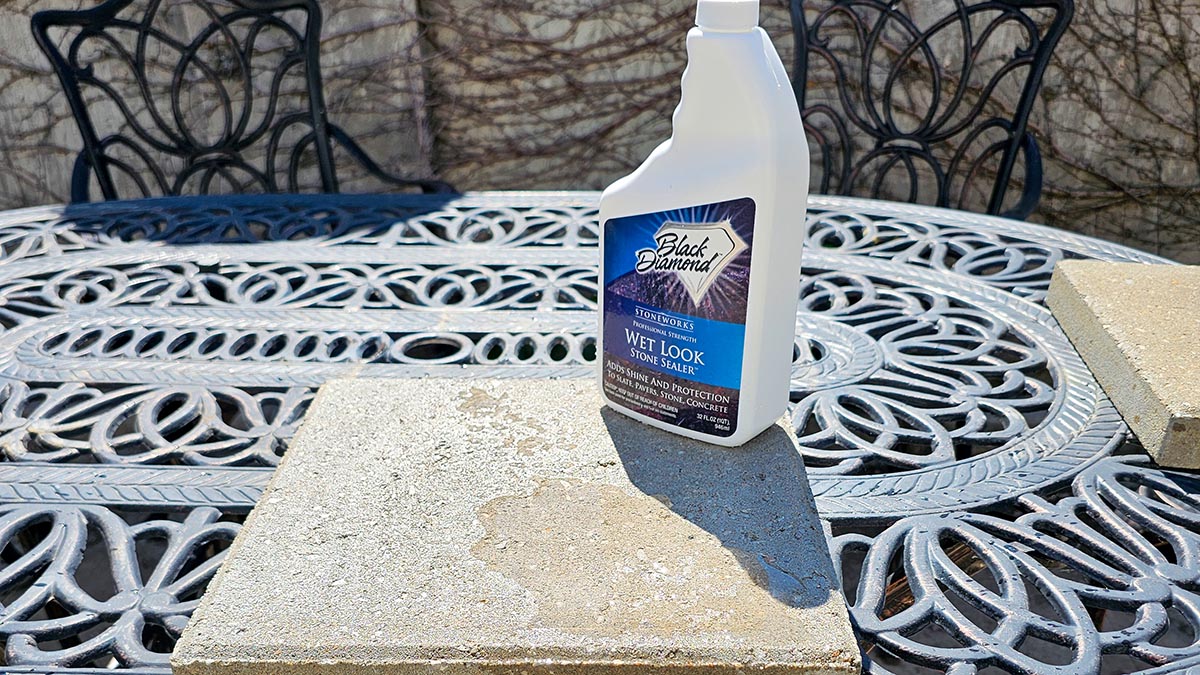
Our Top Picks
Choosing a sealer for pavers doesn’t have to be complicated if you know what to expect from the various products. Our top picks for the best paver sealers available today differ in surface appearance, recommended number of coats, and coverage, but each one works for sealing pavers against the elements and common sources of damage. One of these products is sure to be ideal for your paver project.
Best Overall
Foundation Armor AR350 Acrylic Wet-Look Sealer
What We Like
- Seals and protects without adding an unpleasant yellow tinge
- Leaves a soft sheen that enhances the concrete
- Good water resistance
What We Don’t Like
- Noticeable, but not overwhelming, odor when applied outdoors
Product Specs
- Suitable surfaces: Concrete
- Recommended number of coats: 2
- Finish look: Wet/sheen
Our Ratings: Application 4.8/5; Water Resistance 4.5/5; Stain Resistance 4/5; Appearance 4/5; Value 4/5
This Foundation Armor AR350 solvent-based acrylic sealer works well to seal concrete surfaces without adding an unpleasant yellow tinge to the finish. We used a brush and applied two even coats to our paver, waiting 24 hours between coats. We noticed a slight but not overwhelming odor when we tested this product outdoors. It might be stronger if applied to indoor pavers.
We liked the finished look: The pavers had a pleasant sheen but were not overly shiny, and the color of the concrete seemed slightly deeper and more uniform. Foundation Armor AR350 fared very well in our water-resistance tests. The water beaded up instead of soaking in, and the sealant offered a modicum of protection against stains. We applied wet clay-based mud to the paver’s surface and let it dry completely. This type of mud is notorious for leaving brownish-red stains on concrete, but we could spray the mud away with water, and it didn’t leave a stain.
In our durability test, we sprinkled sand on the paver and walked over it several times before brushing the sand off and looking for damage to the surface. We found a few scuffed spots, but when we repeated our water test, it appeared they were superficial—the surface still repelled water. This product is only intended for use on concrete; users will not want to apply it to brick, flagstone, or other natural stone surfaces.
Get the Foundation Armor AR350 paver sealer at Amazon or The Home Depot.
Best Bang for the Buck
Eco Advance Concrete & Masonry Siloxane Waterproofer
What We Like
- Cost-effective way to add a layer of protection
- Effectively repels water without posing a risk to pets
- Invisible finish maintains appearance of pavers
What We Don’t Like
- Less surface abrasion protection compared to other brands
Product Specs
- Suitable surfaces: Concrete, brick, stone, and other types of masonry
- Recommended number of coats: 2
- Finish look: Natural
Our Ratings: Application 4.4/5; Water Resistance 4/5; Stain Resistance 4/5; Appearance 4/5; Value 4.3/5
You don’t have to spend a lot of money to add a layer of protection to your concrete pavers. The Eco Advance concrete and masonry waterproofing sealer protects against water damage, mold and mildew growth, and de-icing salts. Best of all, it’s available at an affordable price.
This is a concentrated solution, so we mixed it with water before applying it with our pump sprayer, as recommended by the manufacturer. We applied a total of two coats, waiting 24 hours between coats.
When completely dry after 24 hours, we couldn’t tell just by looking that there was anything on the paver’s surface. The paver didn’t look any different to us, and it also felt the same as before applying the sealer, leaving us skeptical about any real value. However, we conducted our water test, and the water beaded up and ran off the paver. This product also passed our mud stain tests with flying colors, but it wasn’t quite as durable during the sand test. Walking on the sand left a few scratches on the paver’s surface.
While the Eco Advance sealer might not be as protective as other products, there’s a clear trade-off. It’s environmentally friendly, low-to-no volatile organic compounds (VOCs), and it doesn’t pose a risk to pets.
Get the Eco Advance paver sealer at Amazon or The Home Depot.
Best Acrylic
Foundation Armor WB25 Acrylic High-Gloss Sealer
What We Like
- Imparts a smooth high-gloss finish
- Highly effective at repelling water
- Impressive stain and abrasion resistance
What We Don’t Like
- May be slippery when wet
Product Specs
- Suitable surfaces: Concrete
- Recommended number of coats: 2
- Finish look: High gloss
Our Ratings: Application 4.8/5; Water Resistance 4/5; Stain Resistance 4/5; Appearance 4/5; Value 3.8/5
If you’re looking to impart a high sheen to your pavers while adding water and stain protection, check out the Foundation Armor WB25 sealer. This is a water-based sealer that imparts a noticeable high-gloss film on the surface of the pavers that sparkles in sunlight and feels smooth to the touch.
We applied two coats of this sealer and started testing once the pavers were completely dry. Foundation Armor WB25 is highly effective at repelling water and stains. The mud we smeared on and let dry washed right off without leaving a trace. It also stood up well to our abrasions test using sand. We didn’t notice any scuffs after we cleared away the sand, and it continued to repel water.
Ironically, the downside for us was the shine: The pavers looked a bit like plastic and felt slippery when wet. While we only tested on individual concrete pavers, we think the slippery feel might be of concern in a high-traffic area that gets wet often. However, Foundation Armor sells nonslip grit that users can add to the product to make the surface less slippery. Keep in mind that this is only a concrete sealer. Foundation Armor specifies that it’s not a brick paver sealer.
Get the Foundation Armor WB25 paver sealer at Amazon (1 gallon), Lowe’s (5 gallons), or The Home Depot (5 gallons).
Best Penetrating
Ghostshield Siloxa-Tek 8500 Concrete/Masonry Sealer
What We Like
- Penetrates to protect against water, stains, and salts
- Environmentally friendly low-VOC formula is safe around pets
- Available in concentrated or ready-to-use formulations
What We Don’t Like
- Noticeable odor while product is wet
Product Specs
- Suitable surfaces: Concrete, brick, other masonry
- Recommended number of coats: 2
- Finish look: Invisible
Our Ratings: Application 4.8/5; Water Resistance 4.5/5; Stain Resistance 4.3/5; Appearance 4.3/5; Value 4/5
This Ghostshield Siloxa-Tek 8500 sealer is just the ticket if you’re looking for a penetrating sealer that repels water and stains and protects the masonry from de-icing salts.
We tested the concentrated version, and a ready-to-use version is also available. The concentrated product goes a long way—it dilutes at a 1:4 ratio of product to water. We mixed it in our pump sprayer and applied two uniform coats, one right after the other, as the manufacturer recommends applying the second coat while the first coat is still wet. We noticed an odor, but it only lasted while the product was wet. Plus, it’s low VOC and environmentally friendly.
When both coats had completely dried after 24 hours, we started testing. Our first observation was that this sealer was virtually invisible, but it still repelled water well. Mud smears also rinsed away easily, but we found a couple of scuffs after conducting our abrasion tests with sand. The scuffs were superficial, however, and didn’t seem to affect the product’s ability to repel water—it still beaded up and ran off.
While the concentrated version of this product is on the pricey side, it goes a lot further than some of the other products we tested.
Get the Ghostshield paver sealer at Amazon (concentrate) or The Home Depot (ready to use).
Best for Concrete
Foundation Armor AR500 Acrylic High-Gloss Sealer
What We Like
- High-gloss finish adds sheen without a yellowish tinge
- Versatile application with a roller or a pump sprayer
- Water-resistant and also repels stains
What We Don’t Like
- The high sheen can create a slippery surface
Product Specs
- Suitable surfaces: Concrete
- Recommended number of coats: 2
- Finish look: High-gloss wet
Our Ratings: Application 4.3/5; Water Resistance 5/5; Stain Resistance 4/5; Appearance 4/5; Value 4/5
The Foundation Armor AR500 concrete sealer provides a high gloss, making it a good choice for enhancing a concrete surface’s appearance. This sealer is ultraviolet (UV)-resistant and designed to protect against chemical damage and de-icing salts.
This is the third Foundation Armor sealer in our tests, and it imparted the shiniest finish. However, we didn’t notice a plastic look like we did with the manufacturer’s WB25 formulation. The sheen with AR500 was more uniform but not as natural as the surface would have looked if truly wet. We didn’t dislike the effect, but we didn’t love it, either.
The sealer did a good job resisting water, and we could hose off mud smears with ease. It also fared well in our abrasion tests: We only found a few surface scuffs that didn’t affect the water resistance.
While this product delivers a very high shine, it also makes the concrete a bit slippery. As a result, we think this formulation is best suited to low-traffic areas, such as concrete fountains or curbs that don’t get a lot of foot traffic.
Get the Foundation Armor AR500 paver sealer at Amazon, Lowe’s, or The Home Depot.
Best for Wet Look
Black Diamond Stoneworks Wet-Look Stone Sealer
What We Like
- Adds an attractive satin-type sheen
- Effectively repels water
- Mud washes off easily without leaving stains
What We Don’t Like
- Not as glossy as other sealers despite being a wet-look sealer
Product Specs
- Suitable surfaces: Concrete, sandstone, and other masonry types
- Recommended number of coats: 1 to 3
- Finish look: Wet
Our Ratings: Application 4.8/5; Water Resistance 4.5/5; Stain Resistance 4/5; Appearance 4.5/5; Value 4/5
This versatile Black Diamond Stoneworks sealer adds a sheen to masonry surfaces, but it wasn’t as glossy as some of the other sealers we tested. However, it did impart a nice satin-type sheen that we found more attractive.
The label said we could apply up to three coats, but we applied just two to compare it head-to-head with most of the other sealers. We used a pump sprayer to apply both coats, letting the surface dry between coats.
The Black Diamond sealer did a good job of repelling water and smeared mud washed off well, but we did find a few deeper-than-surface scratches after our sand abrasion tests. However, we were pretty aggressive with our tests, so this product might still be suitable for pavers in areas with light foot traffic or where sand isn’t an issue.
Get the Black Diamond Stoneworks wet-look paver sealer at Amazon.
Best Color Enhancer
Black Diamond Stoneworks Color Enhancer Stone Sealer
What We Like
- Darkens the concrete’s natural color to camouflage discrepancies
- Effectively repels water
- Suitable for indoor use and a good option for vertical surfaces
What We Don’t Like
- The darkening effect may be too pronounced
Product Specs
- Suitable surfaces: Concrete, all stone (except polished stone), brick
- Recommended number of coats: 1 to 2
- Finish look: Color enhanced (deeper tone)
Our Ratings: Application 3.8/5; Water Resistance 4.5/5; Stain Resistance 4/5; Appearance 4/5; Value 3.8/5
The Black Diamond Color Enhancer sealer deepens and darkens the concrete’s natural color. While this effect made color discrepancies in the concrete look more uniform, the darker tone is quite noticeable. It was a little too dark for our tastes, but users seeking a deeper color might prefer this product.
Other than the color difference, this sealer protected just as well as the other Black Diamond sealer we tested. It repelled water, resisted staining, and suffered only a few surface scuffs from our abrasion tests.
This color-deepening sealer is for both indoor and outdoor use. While we tested it only on pavers, we feel it might be a good option for sealing interior vertical masonry surfaces, such as fireplace surrounds, that won’t be subject to foot traffic.
Get the Black Diamond Stoneworks color-enhancer paver sealer at Amazon.
Jump to Our Top Picks
How We Tested the Best Paver Sealers
| Testing Stats | |
| Products tested | 8 |
| Time spent testing | 3 weeks |
| Tests performed | 4 |
| Price range | $65 to $200 (per gallon) |
Before selecting eight top sealing solutions for testing on our cement pavers, we carefully researched more than 20 types of concrete and masonry sealers. We didn’t consider the brand name as much as we considered whether the product was straightforward to apply and how efficient it was at repelling water, stains, and surface damage from foot traffic.
In our hands-on tests, we applied each sealant solution to 12-inch-square concrete pavers, following the manufacturer’s instructions, and applying more than one coat if recommended. We noted whether the product changed the appearance of the paver and to what degree.
Physical tests included smearing wet (clay-based) mud on the surface of the pavers, letting it dry, and then noting whether it left any residual stains after power-washing. We also tested the sealed pavers for enhanced water resistance and then sprinkled sand on the pavers and walked over the sand to see if it would leave visible scratches and scuffs.
Throughout the testing, we awarded points based on a rubric—the better a sealer for patio pavers performed on a test, the more points we gave it. After testing, we averaged the points to determine our favorite pick and categorize the other products as to their best use.
| Application | Water Resistance | Stain Resistance | Appearance | Value | |
| Foundation Armor AR350 Acrylic Wet-Look Sealer | 4.8/5 | 4.5/5 | 4/5 | 4/5 | 4/5 |
| Eco Advance Concrete & Masonry Siloxane Waterproofer | 4.4/5 | 4/5 | 4/5 | 4/5 | 4.3/5 |
| Foundation Armor WB25 Acrylic High-Gloss Sealer | 4.8/5 | 4/5 | 4/5 | 4/5 | 3.8/5 |
| Ghostshield Siloxa-Tek 8500 Concrete/Masonry Sealer | 4.8/5 | 4.5/5 | 4.3/5 | 4.3/5 | 4/5 |
| Foundation Armor AR500 Acrylic High-Gloss Sealer | 4.3/5 | 5/5 | 4/5 | 4/5 | 4/5 |
| Black Diamond Stoneworks Wet-Look Stone Sealer | 4.8/5 | 4.5/5 | 4/5 | 4.5/5 | 4/5 |
| Black Diamond Stoneworks Color Enhancer Stone Sealer | 3.8/5 | 4.5/5 | 4/5 | 4/5 | 3.8/5 |
Types of Paver Sealers
Sealing pavers and masonry to protect them from water and discoloration isn’t a new idea. Wax-based or linseed-based sealers have been in use for decades to improve water resistance and offer a layer of protection against staining. Those products had various levels of success, but they didn’t always penetrate uniformly, and some ended up changing the appearance of the pavers. Today, we have plenty more options.
Non-Film-Forming vs Film-Forming
While paver sealers are available in various styles and options, the two primary types are non-film-forming sealers and film-forming sealers. The type of paver sealer you choose depends on the reason for sealing.
- Non-film-forming paver sealers offer substantial protection and may last longer than their film-forming counterparts. They cure to a matte finish.
- Film-forming paver sealers provide more comprehensive protection by creating a physical barrier on top of the paver. They come in satin, gloss, and semi-gloss finishes and may require more frequent reapplications.
Solvent-Based vs. Water-Based
Both solvent-based and water-based paver sealers protect against outdoor surface wear. Typically UV- and stain-resistant, they are reasonably easy to apply.
Solvent-based sealers, generally made from an acrylic/polymer blend, will provide a thickness and coating level that varies depending on the sealer’s percentage of solids. They usually offer a thicker, higher gloss appearance than water-based sealers.
VOCs and Eco-Friendly Options
A solvent-based sealer can contain high levels of VOCs, whereas a water-based paver sealer is less likely to contain toxic ingredients.
For years, solvent-based sealers were the products of choice because they were more durable and formed a more protective finish. However, today’s water-based sealers have come a long way. While some may still not be quite as durable as solvent-based options, many now offer good protection against the elements yet are safe for use around pets. Some states, such as California, do not allow the sale of sealers with high concentrations of VOCs.
Acrylics
Acrylic paver sealers, either solvent- or water-based, offer the most comprehensive UV resistance.
Acrylic sealants can be breathable, depending on their solid content. Sealers with 15 percent or lower solids are more breathable than sealers with 20 percent solids, while over 30 percent or more solid content means the sealant is not considered breathable.
Matte-finish sealers are considered breathable because they don’t form a film. Acrylic sealers form a film that dries to a wet or high-gloss finish.
What to Look for When Buying the Best Paver Sealers
To find the best walkway or patio paver sealer, consider its finish, slip or nonslip properties, the cost of sealing, drying time, and durability and endurance.
Finish
Finish refers to the final appearance after the application and curing of the paver sealer.
Finishes can be divided into several categories: a matte finish, a natural-look penetrating sealer, a wet-look paver sealer, and satin-finish options. If you’re looking to retain the masonry’s untouched beauty, opt for a natural finish.
“Wet look” refers to a finish that makes paver stones look shiny and darker, as if it had recently rained. You can get the look using a high-gloss paver sealer with a higher acrylic or polyurethane concentration. The greater the concentration, the wetter the finish. Paver sealers that contain 25 percent acrylic or polyurethane content provide a semi-gloss finish, while a sealer that is 30 percent solid or higher produces a high-gloss wet look.
For a more natural finish, a penetrating paver sealer probably works best. Penetrating sealants go deep into the stonework or masonry, chemically reacting beneath the surface to protect the paver stones. Penetrating sealers offer a natural look because they don’t form a film and typically don’t alter the appearance of the pavers.
Nonslip
Depending on the sealer, pavers may have a slippery surface, especially when wet. This can occur after the application of high-gloss or wet-look paver sealant.
When choosing a sealant, consider this slip factor. Nonslip, breathable paver sealers are a common choice for areas near pools or other high-traffic areas. Low-traffic areas that offer visual appeal, such as a retaining wall, may benefit from a high-gloss sealant.
Some paver sealers, upon the application of a high-gloss or wet-look sealer, have a “slippery-when-wet” look when dry. To use a wet-look sealer in a high-foot-traffic area, increase traction by adding a nonslip additive before applying the paver sealer. Nonslip additives, which work only with film-forming sealers, are most effective when used on a second coat.
Life Expectancy and Durability
The best paver sealers last between 3 and 5 years. However, some factors, such as maintenance, traffic, and weather, can impact the sealant’s durability. These can shorten the pavers’ overall lifespan.
Use a film-forming sealer to conceal signs of wear on paver stones. A non-film-forming sealant may not hide the telltale signs of aging as well.
Changes in stone color caused by rain can indicate thinning in the patio paver sealant. However, in heavy or extreme rain conditions, even the most recently applied sealant can darken for a day or so until the water evaporates from the surface.
Drying Time
While climate can affect drying time, most paver sealers dry in 24 hours; some can dry in 6 hours. The sealant dries when enough solvent has evaporated from the sealer and the stones are no longer tacky.
Fully cured paver sealers have hardened into their final stage and are resistant to damage. While most sealers dry within 24 hours, curing can take 7 to 30 days.
Breathability and Penetration
“Breathability” refers to the sealer’s ability to allow moisture vapors to move through the stonework after sealing. If a sealer is breathable, moisture is less likely to get trapped below the surface.
Penetrating sealers seep into concrete or masonry and fill holes or other spaces. They protect the substrate material while preventing dirt, debris, or insects from causing damage.
Substrates
The stabilizing layer beneath the paver stones, which typically consists of large amounts of crushed gravel that varies from ¾ inch down to dust, is called the substrate. On walkways and driveways, the substrate is generally 4 to 6 inches beneath the pavers.
The Advantages of Using a Paver Sealer
Sealing paver stones helps protect your investment against damage and decay to prolong the life of the deck, driveway, poolside, and other stonework areas. Other advantages of owning one of the best paver sealers include:
- Enhanced aesthetic. The best paver sealer can ramp up a home’s curb appeal, adding a high-gloss or matte finish that protects paved areas against harmful UV rays and prevents fading.
- Weathering protection. All paver stones are vulnerable to the elements and will become dull or damaged over time. Paver sealers can help protect paver stones from stains, fading, or high-traffic wear and tear.
- Extended lifespan. Paver sealers can extend the lifespan of your paver stones, making them stronger to last longer, eliminating the need to replace stones on an ongoing basis.
Tips for Using the Best Paver Sealers
Getting the best results from your paver sealer also depends on how you apply the sealer.
- Once work begins, don’t stop. Letting an area dry before you’ve completely sealed the entire area can affect the appearance of the finished pavers and cause the surface to look splotchy or uneven. For example, if you’re applying a driveway paver sealer, you’ll want to work quickly to keep a wet edge to reduce the risk of streaks when the sealer dries.
- A sprayer can help speed the application of sealer, ensuring no area remains untouched. It also makes the application considerably easier with less cleanup.
- When applying the paver sealer, keep applying until you reach the saturation point. Ensure the pavers are wet and that you’ve filled the crevices and spaces. Follow up by using a dry roller to soak up excess sealant and eliminate drip marks.
- Read the manufacturer’s instructions. While most sealants work similarly, reading the instructions will alert you to any quirks or other specifics with that particular brand.
FAQs
Paver sealers are one of the easiest ways to protect and enhance a home’s hardscape. Keep reading to find answers to some of the most common questions about paver sealers.
Paver sealer is a liquid solution for pavers that blocks moisture and harmful UV rays from penetrating the stone.
General estimates recommend allowing a gallon of sealer to cover 80 square feet.
The best time to apply the product is on a clear, sunny, and dry day. The ideal temperature is 75 degrees Fahrenheit, but temperatures in the 50 to 90 degree Fahrenheit range generally provide good results.
Follow the manufacturer’s instructions carefully and use a spray applicator, roller, or brush to apply the paver sealer.
Paver sealers are made to last anywhere from 2 to 6 years, although their longevity will ultimately depend on the quality of the product and the level of abuse from the elements.
Rolling allows you to press the solution into porous areas of the concrete while spraying offers a lighter but more uniform coat. It’s best to follow the manufacturer’s instructions for that particular product.
It all depends on the desired look. If you want a natural look, a matte finish is better. If you want to hide imperfections and give the concrete a wet look, opt for a glossy sealer.
Meet the Tester
Glenda Taylor is a product tester and writer specializing in the construction, remodeling, and real estate industries. She and her husband own a general contracting company, and Taylor is experienced in both residential and commercial building applications. She tests a wide range of power tools, as well as other home improvement, household, and lawn-and-garden products.
Additional research provided by Ana Chevalier.
